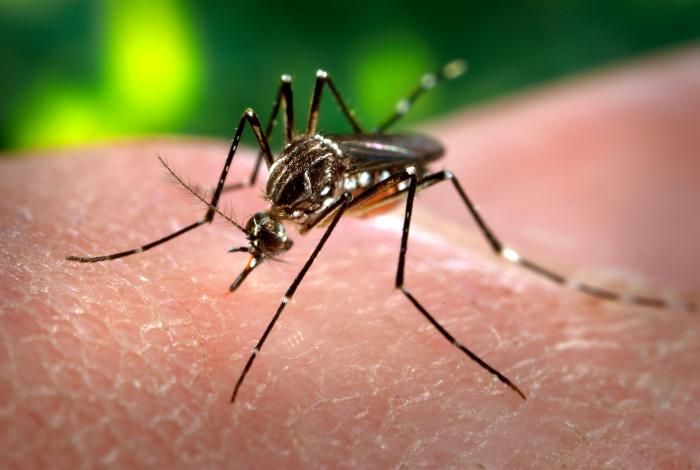Q: I’m concerned about the recent news stories about new diseases such as the Zika virus spread by mosquitoes. I spend a good amount of time outdoors gardening and mosquitoes usually bite me. Are there any things I can do to prevent this problem?
A: Zika virus is transmitted to people primarily through the bite of an infected Aedes mosquito. These are the same mosquitoes that spread dengue and chikungunya viruses. Aedes mosquitoes prefer to live near people and only female mosquitoes bite. They are mostly daytime biters, but can also bite at night. Mosquitoes acquire the virus when they feed on a person during the first week of infection when they are carrying high numbers of Zika virus in their blood. Once inside the mosquito, the virus moves from the digestive tract into the salivary glands, a process which is thought to take about a week. After that time, the mosquito can spread Zika to the next person she bites. Zika virus can also be transmitted from mother to her fetus during pregnancy, through blood transfusions, and through sexual contact.
The best way to avoid getting Zika virus or other diseases spread by mosquitoes is to avoid being bitten by infected mosquitoes. We can minimize mosquito numbers by eliminating breeding habitats, for example, standing water in containers around our homes. When outdoors, dress properly and apply insect repellent. Here is a link to a publication on choosing repellents: extension.arizona.edu/sites/extension.arizona.edu/files/pubs/az1311.pdf
Other things you can do include the following.
• Switch to LED lights to be used outdoors - these are not attractive to mosquitoes because they have no ultraviolet spectrum.
• Place fine mesh over rain barrels to prevent egg laying.
• Repair screens for windows that may have developed holes.
• Repair leaky pipes and faucets.
• Mosquito dunks for ponds, birdbaths, and other water features with standing water.
What doesn't work - electronic bug zappers and high frequency repellent devices.
Peter L. Warren is the urban horticulture agent for the Pima County Cooperative Extension and the University of Arizona. Questions may be emailed to tucsongardensage@gmail.com





